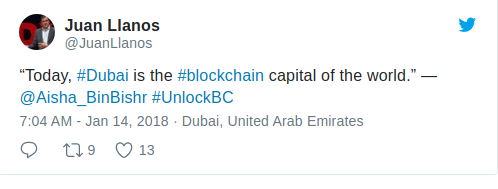What Is Blockchain?

All of a sudden, blockchain is everywhere.
The technology, which was invented in 2008 to power Bitcoin when it launched a year later, is being used for everything from copyright protection to sexual consent (yes, really).Considering the daily churn of news around blockchain, not to mention the skyrocketing value of Bitcoin and other cryptocurrencies that rely on the technology, you may be wondering what the hell blockchain actually is. It’s actually a pretty simple concept, though things quickly get more complicated the harder you look. With that in mind, here are a few different ways to wrap your head around blockchain, from straightforward definitions to far-reaching metaphors.
How Does Blockchain Work?
To start, here’s the simplest explanation with no metaphors or hyperbole. In the language of cryptocurrency, a block is a record of new transactions (that could mean the location of cryptocurrency, or medical data, or even voting records). Once each block is completed it’s added to the chain, creating a chain of blocks: a blockchain. Because cryptocurrencies are encrypted, processing any transactions means solving complicated math problems (and these problems become more difficult over time as the blockchain grows). People who solve these equations are rewarded with cryptocurrency in a process called “mining.”
If you’ve always wanted to own some cryptocurrency, a new app might be a good way to get your hands.f you own any cryptocurrency, what you really have is the private key (basically just a long password) to its address on the blockchain. With this key you can withdraw currency to spend, but if you lose the key there’s no way to get your money back. Each account also has a public key, which lets other people send cryptocurrency to your account. Information on the blockchain is also publicly available. It’s decentralized, meaning it doesn’t rely on a single computer or server to function. So any transactions are instantly visible to everyone. That brings us to our first metaphor: the public ledger.
Blockchain Is Like a Public Ledger
If you send Bitcoin (or some other cryptocurrency) to a friend, or sell it, that information is publicly available on the blockchain. Other people may not know your identity, but they know exactly how much value has been transferred from one person to another. Many people see blockchain as an alternative to traditional banking. Instead of needing a bank or some other institution to verify the transfer of money, you can use blockchain and eliminate the middle man.
“The Internet of Value”
Building off the idea of a public ledger, another popular way to describe blockchain is as the internet of value. The idea is pretty simple: the internet made it possible to freely distribute data online, blockchain does the same thing for money. Instead of relying on newspapers, television and radio (which are mainly controlled by big corporations), the internet gives everyone a voice—for better or worse. Blockchain and cryptocurrency make it just as easy to transfer money across the world by bypassing traditional middlemen like banks and even governments.So you’re ready to buy some cryptocurrency. Maybe you’ve been reading up on blockchain technology…
Blockchain Is Like Google Docs
Here’s a clever metaphor for blockchain from William Mougayar, the author of The Business Blockchain: blockchain is like Google Docs. Before Google Docs, if you wanted to collaborate on a piece of writing with someone online you had to create a Microsoft Word document, send it to them, and then ask them to edit it. Then you had to wait until they made those changes, saved the document, and sent it back to you.
Google Docs fixed that by making it possible for multiple people to view and edit a document at the same time. However, most databases today still work like Microsoft Word: only one person can make changes at a time, locking everyone else out until their done. Blockchain fixes that by instantly updating any changes for everyone to see. For banking, that means that any money transfers are simultaneously verified on both ends. Blockchain could also be used in the legal business or architecture planning— really any business where people need to collaborate on documents.
Blockchain Is Like a Row of Safes
Here’s another useful explanation from online forum Bitcoin Talk. This one does a really good job of explaining how public and private
keys work:
Imagine there are a bunch of safes lined up in a giant room somewhere. Each safe has a number on it identifying it, and each safe has a slot that allows people to drop money into it. The safes are all made of bulletproof glass, so anybody can see how much is in any given safe, and anybody can put money in any safe. When you open a bitcoin account, you are given an empty safe and the key to that safe. You take note of which number is on your safe, and when somebody wants to send you money, you tell them which safe is yours, and they can go drop money in the slot.
After rising from under $1,000 to almost $20,000 in the past year, Bitcoin crashed spectacularly…
Blockchain Is Like DNA
Finally, this one, from Robin Chauhan on Medium, is a little far out, but I like it. Blockchain is a record of transactions, spreading across the internet as more people use cryptocurrencies. Similarly, DNA is a record of genetic transactions and mutations that spread as life expanded across the earth. Both become more complicated over time as our DNA evolves and new blocks are added to the blockchain.
Each blockchain (Bitcoin, Ether, Ripple) is like as a distinct species (human, chimpanzee, etc.). A blockchain can also be forked (like with Bitcoin Cash) to create a competing currency in the same way that two distinct species can share common ancestor. Of course, changes to DNA don’t happen easily—scientists believe it takes about a million years for a genetic mutation to catch on—and building a blockchain isn’t easy, either. The process of evolution and natural selection is a little bit like mining, a complicated series of steps that creates something incredible.
Chuck Reynolds

Marketing Dept
Contributor
Please click either Link to learn more about Bitcoin.
Interested or have Questions, Call Me, 559-474-4614
David https://markethive.com/david-ogden
 Markethive poised to go to battle. Pay attention because it has taken 20 years to prepare for this journey into crypto wealth.
Markethive poised to go to battle. Pay attention because it has taken 20 years to prepare for this journey into crypto wealth.











